In my quest to try out lots of interesting older tech, something really cool popped up for an incredibly low price. I acquired it and found it very useful. Here is the story.
Acquiring the Converter
I have eBay alerts setup for various things and one of them alerted me to a collection of SCSI cables. In amongst the photos I saw something special and so I immediately paid the £12 asking price for it all. This is what turned up.
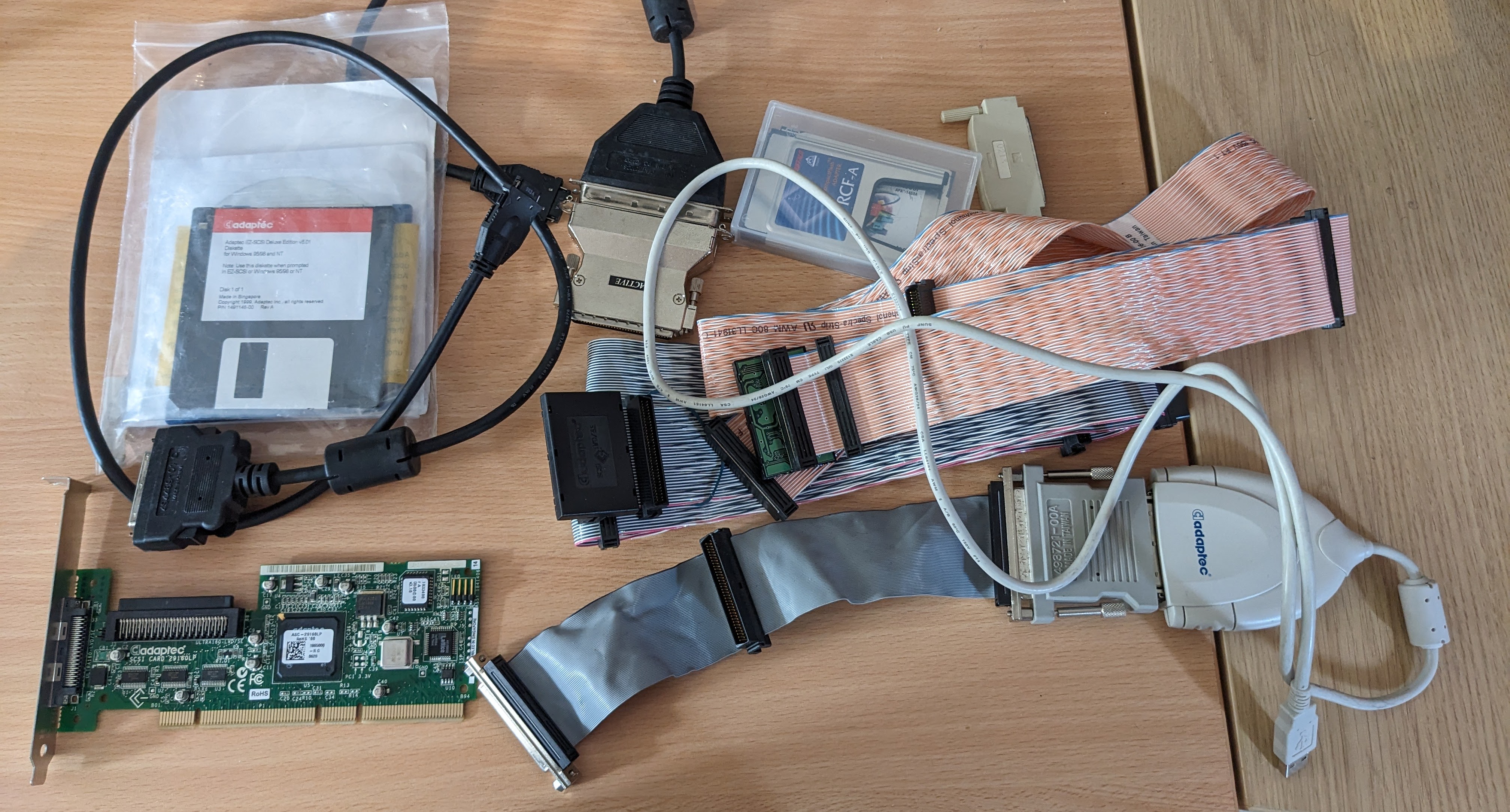
There are a few SCSI cables, converters, terminators, PCMCIA SCSI cards, a PCI SCSI card, driver disks and the device in the bottom right that drove me to purchase this lot. It is an Adaptec USBConnect 2000.
About the Device
Adaptec released a couple of devices that connect SCSI drives to a USB port of a computer, this is the first one and internally it uses a Shuttle Technology/SCM Microsystems IC which was used in many similar devices at the time. Adaptec themselves only released drivers for Windows 98 for this model but I believe it could be made to work with other versions of Windows. This is fine by me, I wanted to use it on a modern Linux if I could and I was pretty sure this would be supported.
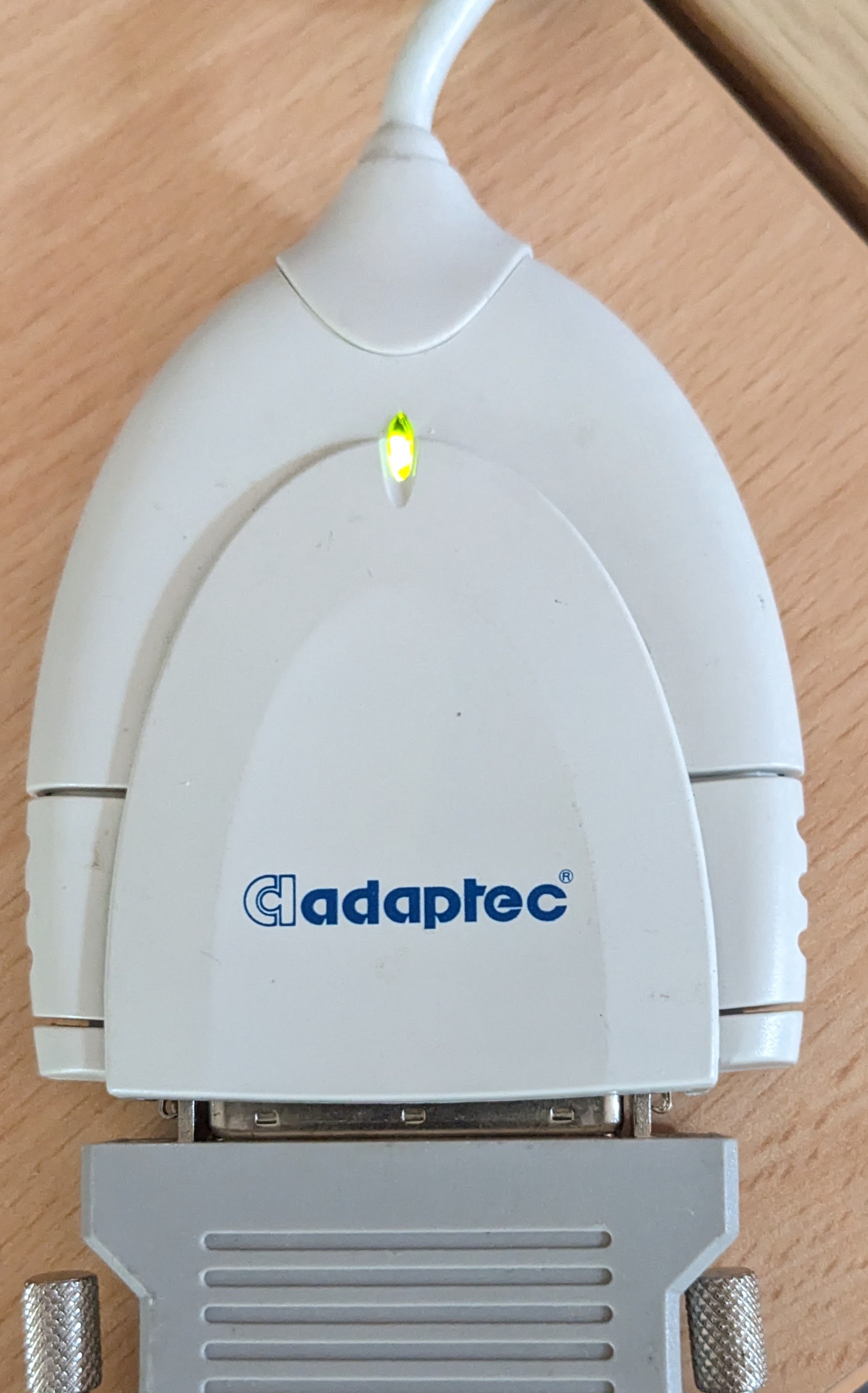
Later on Adaptec released USBXchange and USB2Xchange which used a different IC inside. From what I can tell these models are more difficult to get working in Linux, but I’m not sure.
The USBConnect 2000 and USBXchange are USB 1.1 devices, so not very fast by today’s standards and the USB2Xchange was a USB 2.0 version which would have been much faster.
All of these devices are relatively rare today, often selling for over £100 on eBay.
At the SCSI connector end we have a 50pin medium / high density (both terms appear to be used) connector.
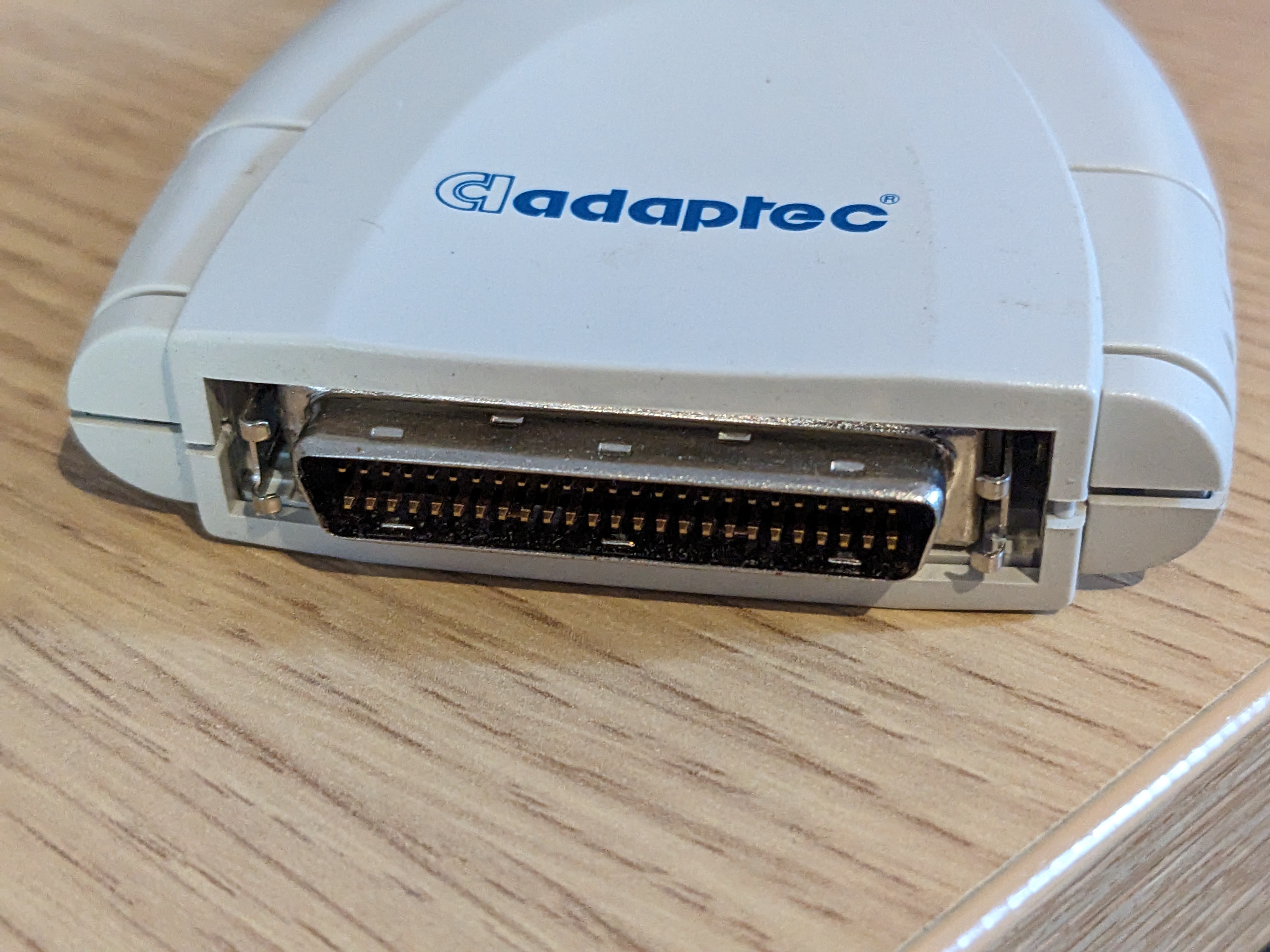
Connecting to a Laptop
To test this device I attempted to connect my box of SCSI drives to my Framework laptop which is running Fedora 38. I don’t quite have the right cable to do this, but using the cables included and cables I already had I managed to rig things so that I had.
- A 50pin Centronics to 68pin SCSI cable
- A 68pin SCSI cable so that I could do a male to male connection
- A 68pin to 50pin SCSI converter
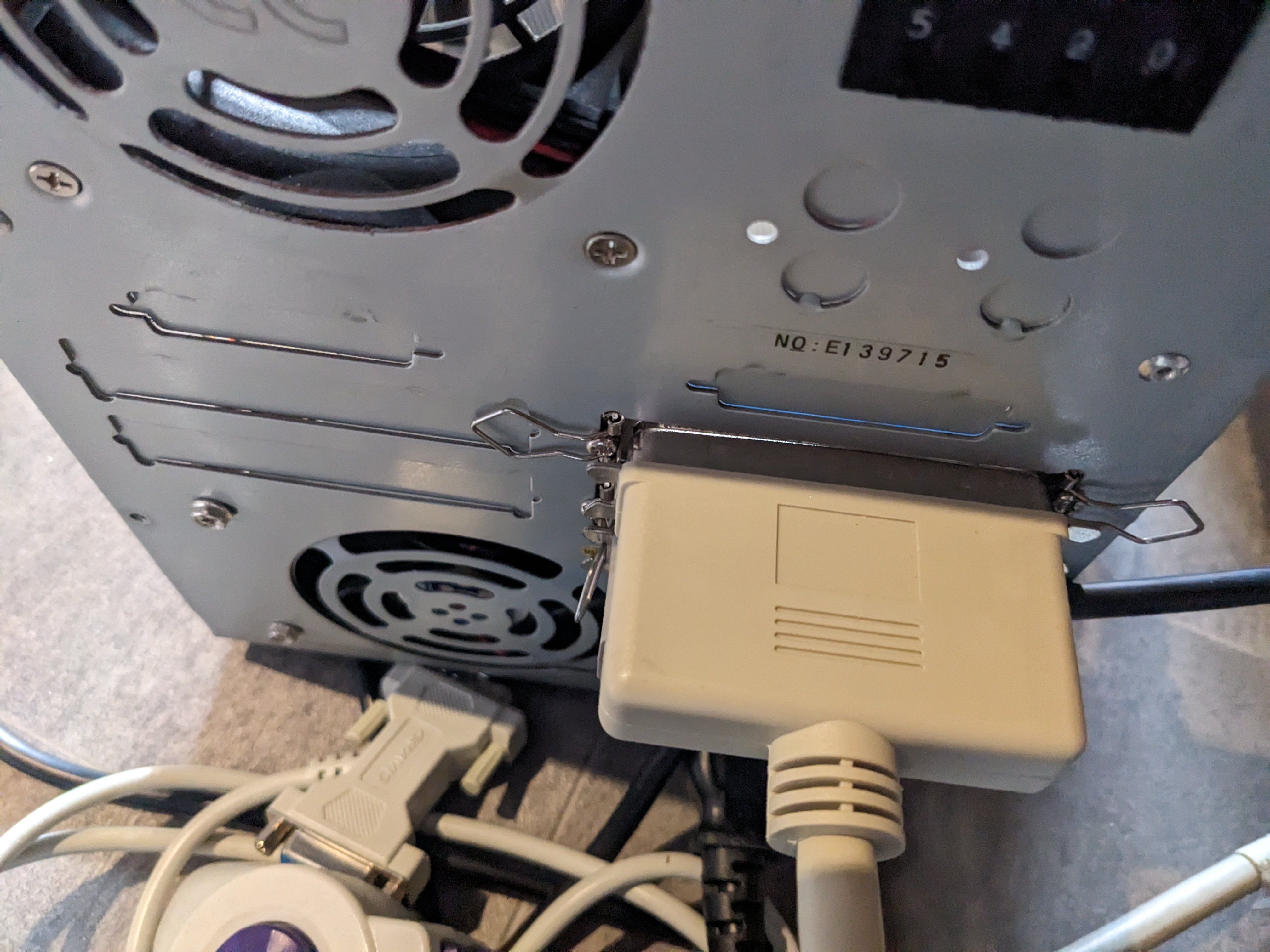
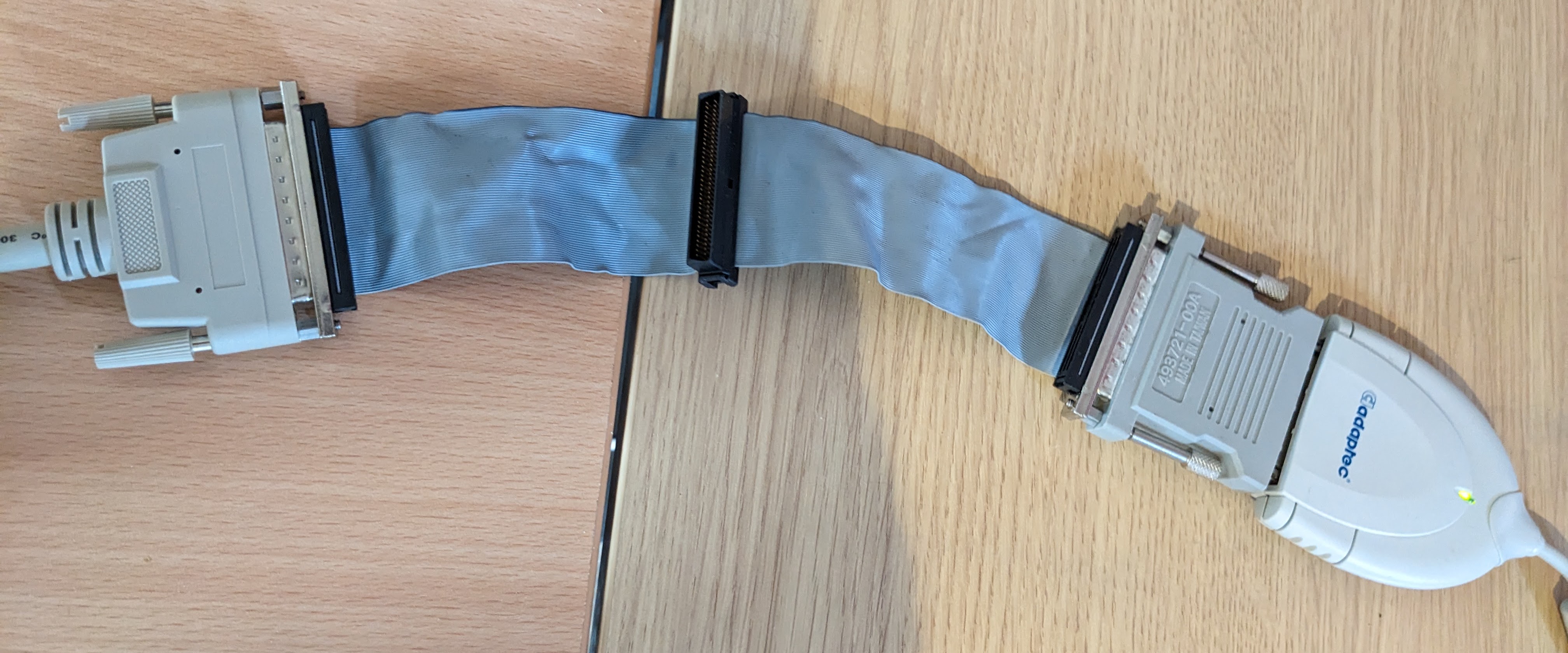
I turned on the SCSI box, plugged in the Adaptec device and it was recognised! Running lsscsi we can see the drives connected ready for use.
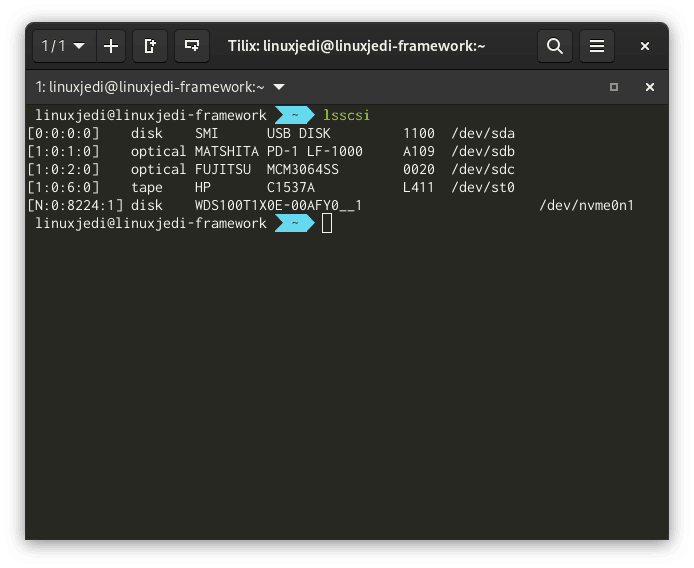
The device allocated to /dev/sda is the SD card module for my laptop and the last item is the NVMe drive in the laptop. The three in the middle are the three functioning drives in my SCSI box!
I think it is pretty impressive that it can access the entire SCSI chain rather than a single device.
Benchmarking
I put a 230MB disk into the Magneto-Optical drive and ran a benchmark of 1MB files to see how fast it was.
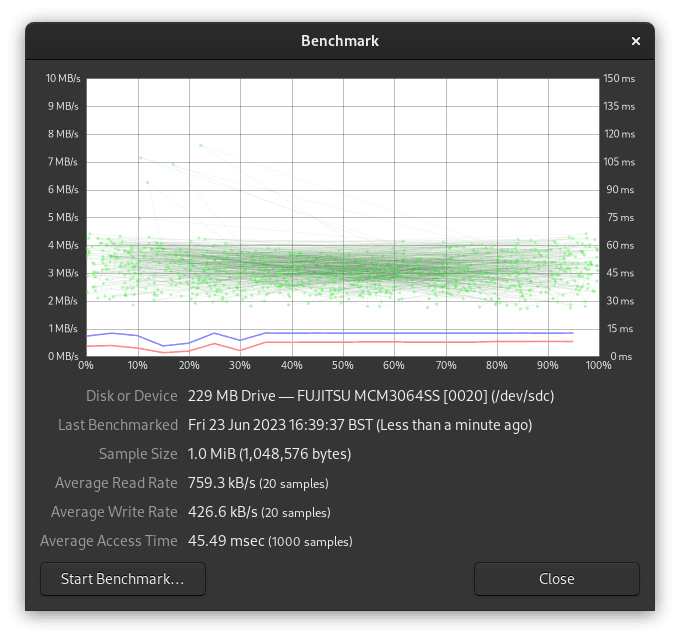
This is definitely not going to win any speed awards. But I think it is the best we could hope for on a USB 1.1. Theoretically it could go nearly 2x faster, but I suspect there are communication overheads that limit things reaching those peak speeds. I suspect writes are slowed due to the requirements to verify when writing.
Conclusion
This device has been very useful for accessing older SCSI drives. I will likely use it for data recovery and transfer for my older systems. If you are tinkering with older SCSI gear and you use Linux (or Windows 98), I highly recommend this as an easy way to access the drives. Even if it is a little slow at doing so.


Leave a Reply